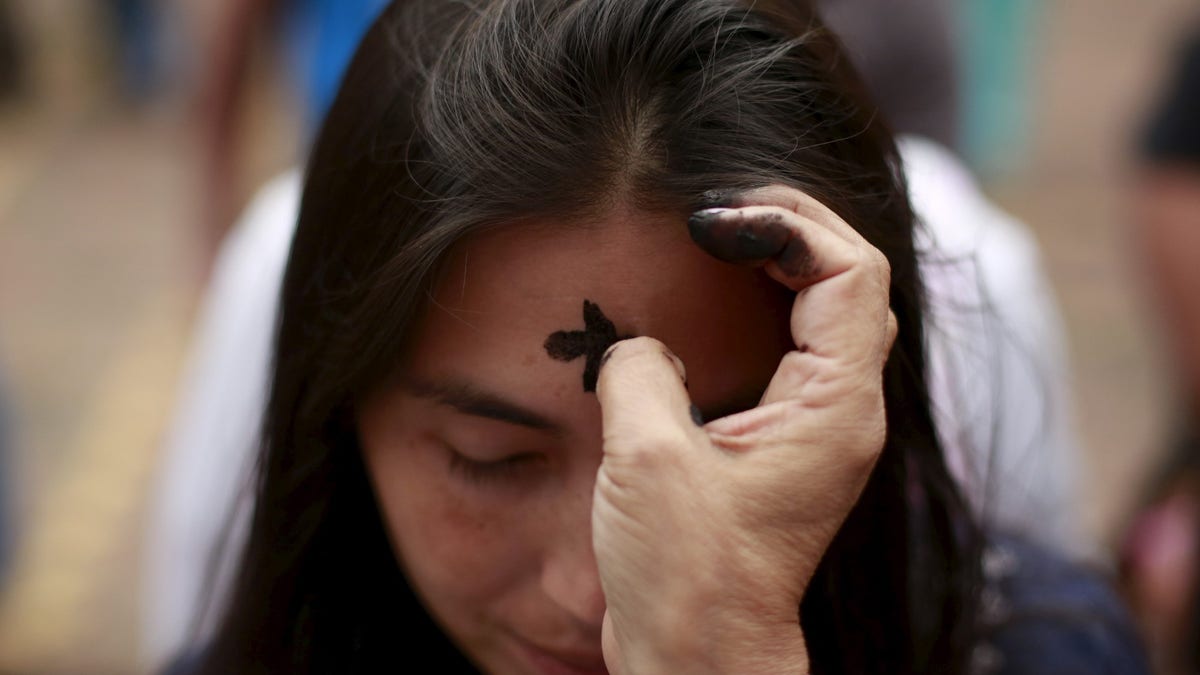
FILE -- A woman receives a cross of ashes during the traditional Ash Wednesday service. (REUTERS/John Vizcaino)
If you happen to go to church to mark this Ash Wednesday, look out for a sign or banner bearing an unfamiliar shape by the door. It’s a letter in the Arabic alphabet and it’s become the symbol of a campaign to stop the slaughter of Christians around the world.
Save the Persecuted Christians (STPC) is a bit of a mouthful. It’s also a straightforward explanation of the newly founded group’s mission – raising awareness about, and combating attacks against, Christians and their places of worship.
“We have now reached that point of critical mass where the urgency of the matter can no longer be denied,” says Sam Rohrer, president of the American Pastors’ Network, the largest group of evangelical pastors in the U.S.
The numbers – not widely known – are startling. STPC estimates that more than 200 Christians are killed for practicing their faith every month, while 60-some Christian churches are attacked or destroyed.
Many of the worst atrocities – mass beheadings, for instance – are committed by ISIS, which has videotaped the massacres and sent them around the world. But other places are also vulnerable. As Egyptian Christians celebrated New Year’s last month, a Coptic Church in Helwan, Egypt was stormed by Islamic extremists, who killed two of the group’s members. Last October, a mob looted and destroyed Christian-owned buildings in Exbat. No one was prosecuted.
It’s a situation that Mark Christian, a doctor in Omaha, Nebraska, knows all too well. Originally named Muhammed Abdullah, he grew up a devout Muslim in Cairo, and ignored reports of anti-Christian activity in his country. “I viewed Christians’ claims of persecution with great skepticism,” he told me. “In my view at the time, they were whiny crybabies with an agenda.”
That changed when he began to look more closely at the faith he was born into, deciding that Islam did not allow him enough free thinking and self-realization.
He converted to Christianity, legally changing his name to honor the evangelist Mark and taking the name of his adopted faith as his own. Today, he preaches at evangelical churches across the United States.
Though Islamic extremists are the leading persecutors of Christians, the problem is not confined to majority-Muslim countries. North Korea’s vicious regime has practically eradicated Christianity in the Hermit Kingdom. And Christians in South and East Asia are also targeted for their faith.
For Pastor Rohrer, the Ash Wednesday campaign is a long-overdue wake-up call. “Americans need to be aware that persecution of Christians is systemic and increasing worldwide,” he says. “If we love liberty and religious freedom, we have to stand up and defend our faith.”
Along with giving up sweets, it’s something to consider throughout the 40 days of Lent.
